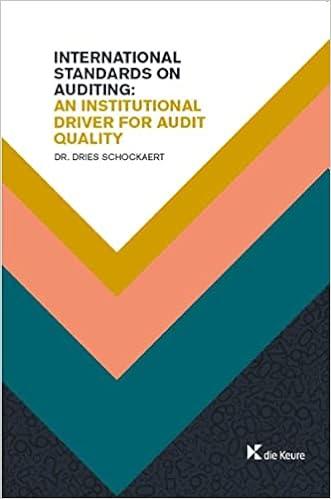Question
Jackson is a private company whose management accountant team is evaluating the performance of its investment centre. The company manufactures phones. So it is using
Jackson is a private company whose management accountant team is evaluating the performance of its investment centre. The company manufactures phones. So it is using different measures recommended to look at its success or failure. The tests he wants to carry out are the following using the table below:
December 2020 financial information Current liabilities ( non interest bearing) $ 56,700
Bond payable $ 105,600
Equity $ 250,000
Cash $ 55,000
A/C Receivable $ 43,000
Inventory $ 27,900
Non Operating Asset $ 128,900
Accumulated Depreciation $ 7,500
Operating Expenses $
Supplies expense 14500
Utilities Expense 8,750
Depreciation Expense 7200
Rent expense 9,200
Training expenses 6700
Revenue 106,200
Unearned Revenue 24,000
COGS 31,000
Interest on debt 8.5%
Risk free Rate 4.5%
Cost of debt 7.3%
Market return 9.4%
Market Risk 1.2
OA in Jan 2020 $210,000
Tax Rate 17%
Note : Company uses gross PPE [including accumulated Depreciation]
REQUIRED Calculate interest expense, net income, tax and EBIT [operating income] Calculate the gross PPE [Plant, Property & Equipment] Calculate cost of equity [re]. What is the average operating asset What is the ROI [return on investment] of the company? Use two component method to calculate ROI and indicate which component contributed most [Profitability or efficiency] Calculate Residual Income [RI ] What is the main difference in calculating ROI and RI? What is the main disadvantages of both ROI and RI
Step by Step Solution
There are 3 Steps involved in it
Step: 1

Get Instant Access to Expert-Tailored Solutions
See step-by-step solutions with expert insights and AI powered tools for academic success
Step: 2

Step: 3

Ace Your Homework with AI
Get the answers you need in no time with our AI-driven, step-by-step assistance
Get Started


